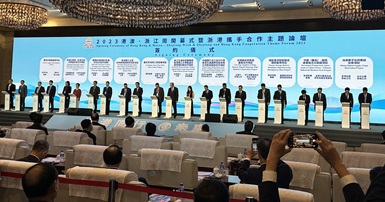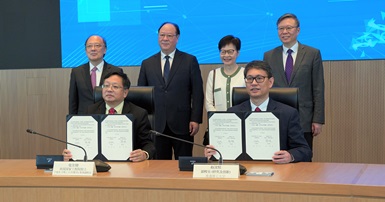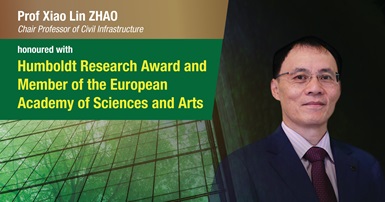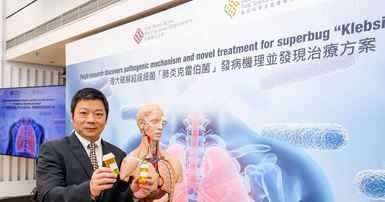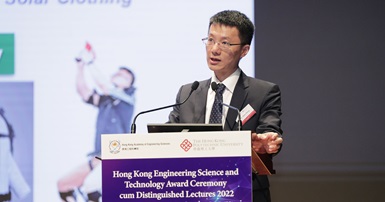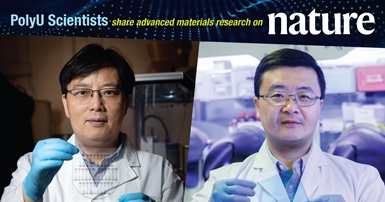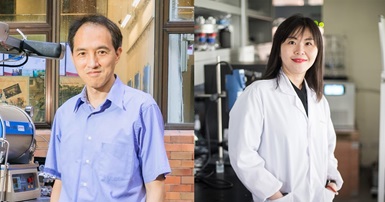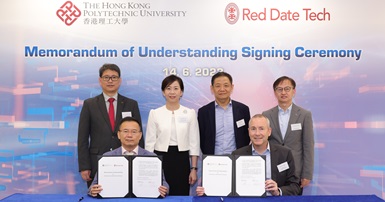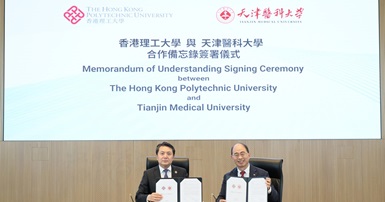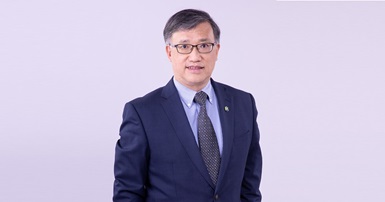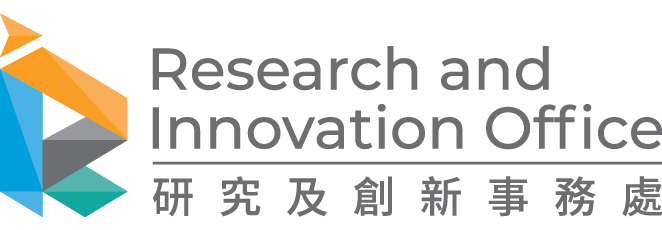PolyU researcher excels on soft and permeable electronics for promising applications
Intelligent wearable technology is transforming electronic devices to be more compatible with human body. Scientist from The Hong Kong Polytechnic University (PolyU) has developed high-performance soft and permeable electronics to enhance applications.
Prof. Zijian ZHENG, Chair Professor of Soft Materials and Devices and Professor of Department of Applied Biology and Chemical Technology at PolyU, is bestowed with the inaugural Hong Kong Engineering Science and Technology (HKEST) Award by the Hong Kong Academy of Engineering Sciences (HKAES). The honour is awarded to Prof. ZHENG’s excellence and contribution in the field of soft and permeable electronics.
Prof. ZHENG, said, “We believe our recent development of permeable electronics will make a huge impact on electronic skins and implantable bioelectronics, especially on chronic biocompatibility and serviceability of the electronics.”
Advancing soft electronics that are wearable, skin-attachable and implantable provides unprecedented opportunities for health monitoring, rehabilitation and biomedical engineering. The soft and high-permeability electronics, which fare well for human comfortability, are reshaping personal healthcare devices, equipped with the capability of recording physiological signals and delivering appropriate therapeutics in real time.
Implantable devices
A recent research led by Prof. ZHENG has innovated a wafer-scale patternable strategy for the high-resolution fabrication of super-soft, stretchable and permeable liquid metal microelectrodes (μLMEs). The high porosity of the fibre mat makes μLMEs have excellent permeability to air, moisture and liquid. On account of advantages on permeability, biocompatibility, conductivity and stretchability, μLMEs are suitable for implantable bioelectronics, for which high device density and chronic comfortability are critically essential.
The research, titled, “Wafer-patterned, permeable, and stretchable liquid metal microelectrodes for implantable bioelectronics with chronic biocompatibility” is published in Science Advances in May 2023. Notably, the successful preparation of μLMEs over a large-size, permeable, and stretchable fiber mat paves the way toward high-density, integrated, implantable, and chronically biocompatible liquid metal (LM) electronics. The innovation solves the issues on thermal and physiological discomforts such as clamminess, dampness and skin inflammation due to long-term attachment of thin-film devices on skin and tissue surfaces.
The research on soft materials and devices is multi-disciplinary in nature, with working collaboration of experts and researchers from different backgrounds. “The inspiration comes from constant reading, discussion and imagination of what we need in the future,” said Prof. ZHENG.
Permeable superelastic conductor
Previous innovation on a new type of superelastic and high permeability conductor demonstrated importance of multi-disciplinary collaborations from various disciplines such as physics and biomedical engineering. Led by Prof. ZHENG, the research developed a novel conductor, named liquid metal fibre mat (LMFM), which enables the fabrication of biocompatible and multifunctional monolithic stretchable electronics.
The research, titled, “Permeable superelastic liquid-metal fibre mat enables biocompatible and monolithic stretchable electronics” was published in Nature Materials in February 2021. By coating or printing liquid metal onto an elastic electrospun fibre mat, the resulting LMFM becomes stretchable and highly permeable.
This research also highlights Prof. ZHENG’s contributions on the field of biomedical engineering and material sciences as reflected by the HKEST Award. This novel innovation on LMFMs becomes a versatile and user-friendly platform to fabricate monolithic stretchable electronics that provide high integration density, multifunctionality and long-term wearability.
Applying these stretchable conductors as electrodes and current collectors of devices, or as interconnects bridging different active components, has enabled a wide variety of stretchable electronics for health monitoring, medical diagnostic and treatment, smart actuation, energy conversion and storage and Internet of Things.
